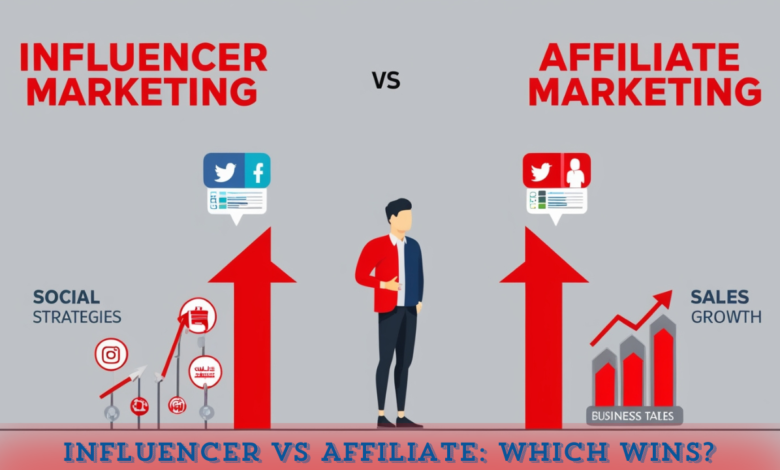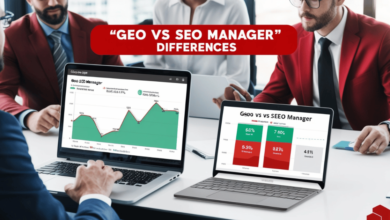
As businesses look for innovative ways to expand their reach, the comparison between influencer vs affiliate marketing has gained increasing attention. Both strategies present unique opportunities for brands, yet their effectiveness depends largely on your business goals. Below, we dive deep into these two marketing models, highlighting their key features, benefits, and when they should be applied.
Understanding Influencer Marketing
What is Influencer Marketing?
Influencer marketing revolves around leveraging individuals with significant social media followings or authority in specific niches to promote products or services. These influencers, ranging from celebrities to niche content creators, engage their audience by creating authentic content, often through Instagram posts, YouTube videos, or blog posts. The personal connection they share with their audience allows brands to tap into a loyal and engaged customer base.
Key Benefits of Influencer Marketing
- Authentic Content Creation: Influencers can create relatable and engaging content that resonates with their followers, often resulting in more authentic brand promotion.
- Access to Niche Audiences: Through influencers, businesses can reach niche markets that traditional advertising might miss.
- Increased Trust: Consumers are more likely to trust recommendations from people they follow and admire, rather than from direct advertisements.
- Enhanced Brand Awareness: Collaborating with influencers exposes your brand to wider audiences, increasing visibility and potential customer acquisition.
Influencer Marketing Payment Models
There are several ways businesses compensate influencers:
- Flat Fee: Payment upfront for content creation.
- Commission-Based: Payment based on the sales generated through their influence.
- Product Exchange: Brands offer products in exchange for content promotion.
Influencer Marketing Challenges
While effective, influencer marketing is not without its challenges:
- High Costs: Popular influencers often charge significant fees for their services, which can strain smaller marketing budgets.
- Risk of Mismatched Audiences: Choosing the wrong influencer can lead to your message being delivered to an audience uninterested in your product or service.
Understanding Affiliate Marketing
What is Affiliate Marketing?
Affiliate marketing is a performance-based strategy where affiliates (partners) promote a product or service in exchange for a commission. These affiliates, often bloggers, content creators, or website owners, earn a percentage of the sales they drive by embedding affiliate links in their content. Unlike influencer marketing, affiliates are only compensated when a sale is made.
Key Benefits of Affiliate Marketing
- Low Risk for Brands: Since affiliates are paid based on the results they produce, there is minimal upfront cost involved, making it a cost-effective model.
- Scalability: With affiliate programs, you can partner with a large number of affiliates, giving your brand the potential to reach wide audiences.
- SEO Benefits: Affiliates often use content marketing techniques, creating blog posts, reviews, or comparison articles that help improve search engine rankings for your brand.
- Targeted Traffic: Affiliates typically have audiences that align closely with specific niches, ensuring that your brand reaches relevant consumers.
Types of Affiliates
Affiliates can take various forms:
- Bloggers: These affiliates write in-depth reviews and articles to promote products.
- Coupon Sites: These platforms attract users looking for deals, driving high-volume traffic to affiliate links.
- Email Marketers: Some affiliates promote products directly to their email subscribers.
Affiliate Marketing Challenges
Despite the clear advantages, affiliate marketing has its own set of challenges:
- Potential for Fraud: Some affiliates may use unethical tactics, such as cookie stuffing, to generate commissions without legitimate sales.
- Low Control Over Branding: Affiliates create their own content, meaning brands have less control over how their products are represented.
Influencer Marketing vs Affiliate Marketing: A Detailed Comparison
| Aspect | Influencer Marketing | Affiliate Marketing |
|---|---|---|
| Payment Structure | Flat fee, commission, or product exchange | Commission-based only |
| Upfront Costs | High, especially for prominent influencers | Low to none |
| Content Creation | Influencers create original content tailored to their audience | Affiliates create content but focus on driving sales |
| Control Over Branding | More control over how the brand is represented | Less control, as affiliates operate independently |
| Risk | High, due to upfront costs and unpredictable ROI | Low risk, as payment is only made for successful conversions |
| Audience Engagement | Typically high, as influencers have personal relationships | Varies, as affiliate marketing relies more on SEO and traffic |
| Scalability | Difficult to scale, especially for smaller brands | Easily scalable, with the ability to onboard multiple affiliates |
Which Strategy is Right for Your Business?
When to Choose Influencer Marketing
If your goal is to build brand awareness, launch new products, or engage with a specific audience on a personal level, influencer marketing can provide a powerful platform. It excels in humanizing brands and building trust quickly. Influencers can help your business make a strong impression, but it comes with a higher cost and some risk, especially if the influencer’s audience does not align perfectly with your target demographic.
When to Choose Affiliate Marketing
On the other hand, affiliate marketing is an excellent choice for businesses looking to drive sales with minimal risk. Because affiliates are only paid based on performance, it’s a cost-effective option for brands with tighter marketing budgets. Affiliate marketing also lends itself well to long-term relationships and can be scaled quickly to reach a broad audience.
Combining Both Strategies for Maximum Impact
For businesses that want to maximize reach, a hybrid approach can be highly effective. By leveraging influencers for brand awareness and affiliates for sales, you can cover all aspects of the customer journey, from discovery to purchase. This approach requires careful management, but it allows you to capitalize on both the engagement of influencer marketing and the cost-efficiency of affiliate marketing.
Conclusion
Both influencer marketing and affiliate marketing offer unique advantages, but the right choice depends on your business’s specific goals. Influencer marketing excels at building trust and awareness, while affiliate marketing drives cost-effective sales. By understanding the strengths of each model and strategically applying them, businesses can create a comprehensive marketing strategy that maximizes both visibility and revenue.
FAQs
What is the main difference between influencer marketing vs affiliate marketing?
The primary difference lies in the payment structure. Influencer marketing often involves upfront payments, while affiliate marketing operates on a commission-based model, paying only for successful conversions.
Which marketing strategy is more cost-effective?
Affiliate marketing is generally more cost-effective as it only requires payment when a sale is made, whereas influencer marketing can involve high upfront costs for content creation and promotion.
Can I combine influencer and affiliate marketing?
Yes, combining both strategies can yield powerful results, allowing you to drive brand awareness through influencers and increase conversions with affiliate partners.
How do I choose the right influencers or affiliates for my business?
Choosing the right partners requires research into their audience, content style, and engagement levels. Ensure that both influencers and affiliates align with your brand values and target demographic.




One Comment